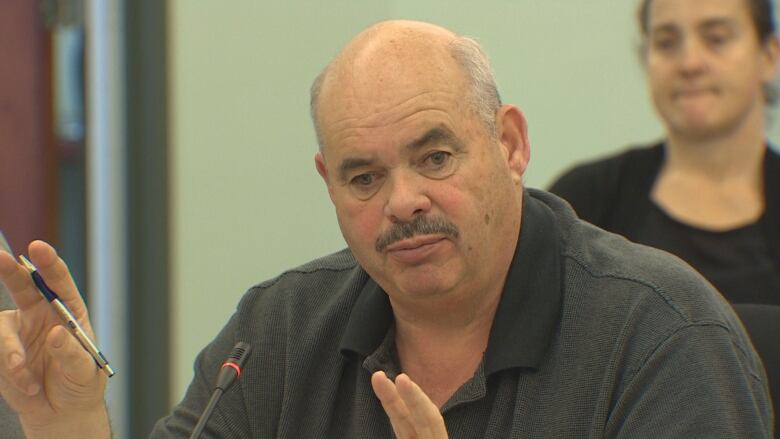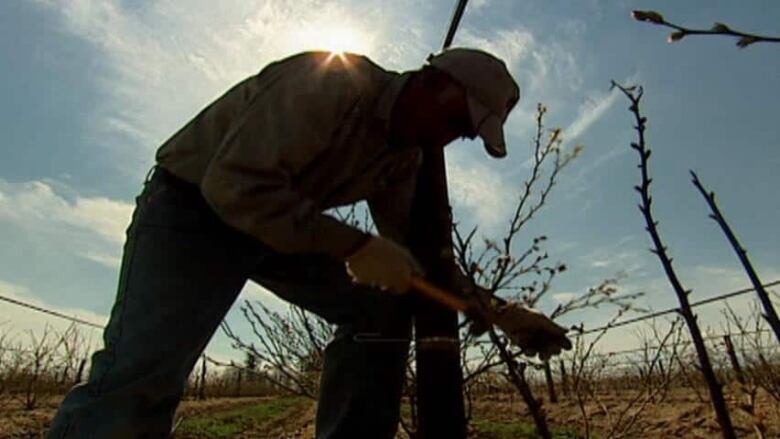New air travel restrictions worry Maritime sectors reliant on foreign workers
'Everything was coming together good for us to have our workers in on time and then all hell broke loose'

Maritime farmers and seafood processors whorely on temporary foreign workers are scrambling to understand how theywill be impacted by new international air travel restrictions imposed to stop the spread of COVID-19.
Ottawa is temporarily stopping commercial flights from Mexico and the Caribbean, and closing Halifax and Moncton airports to international charter flights as part of measures to deal with new variants.
"That announcement on Friday kind of took us by surprise," saidOsborne Burke, manager of Victoria Co-operative Fisheries, a lobster and crab processor in northern Cape Breton.
Like so many processors in the region, Burke's co-op depends on workers from Mexico.
"Everything was coming together good for us to have our workers in on time, and then all hell broke loose," he told CBC News. "We don't know what we're going to do right now."

The industry estimates about 2,500 temporary foreign workers are employed seasonally in Maritime seafood plants.
Burke and others in the industry told CBC News they understand the need for precautionary steps,but they are not clear how those measureswill affect the arrival of foreign workers, who are deemed essential workers by Canada.
"What is [the government's]position in relation to flights coming in for temporary foreign workers? Does that mean they're still going to allow those airlines to bring in regular commercial flights for temporary foreign workers, or does it mean that we, as industry, now all have to go and charter flights?" he said.
"And can we land in Halifax or Moncton? On the face of it,the answer is no."
Transport Canada was unable to offer clarity Monday, but a spokesperson told CBC News the department would explain on Tuesday.
"It looks like we need a bit more time to verify the information," Sau Sau Liu said in an email.
Industry hopeful
Nat Richard,executive director of the Moncton-based Lobsters Processors Association, saidthe loss of commercial flights from Mexico and the Caribbean will make it more expensive to bring in foreign workers.
The new requirement for a COVID-19test 72 hours before departure for Canada and quarantining is another complication, but federal officials have offered assurances that charter flights with temporary foreign workers will be permitted,he said.

"It's not the end of the world.It's not ideal,but we understand that these are pretty unprecedented circumstances," Richard said. "Our understanding is that if indeed we're allowed to proceed with charters, it's very likely that Halifax, potentially Moncton as well, might be allowed. But again ... we're seeking clarification on that right now."
Farm sector in same boat
The same issue is facing the agriculturalsector.
In Nova Scotia alone, about 1,500 temporary foreign workers are brought in each year to plant, tend and harvest crops. Greenhouse workers have already started to arrive.
Alan Melvin farms cauliflower, spinach, green onions and other vegetables in the Canning area of Nova Scotia's Annapolis Valley.
He said there are a number of unanswered questions from the federal government's announcement.
"We're hoping that in the near term that the government can sort out the logistics of that and help us through it to make sure we get our workforce here for the year," he said.












_(720p).jpg)


 OFFICIAL HD MUSIC VIDEO.jpg)
.jpg)



























































































